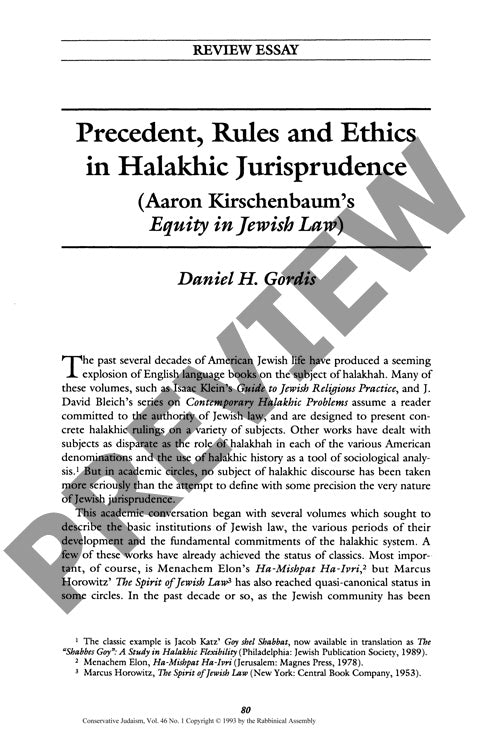Precedent Rules and Ethics in Halakhic J
Couldn't load pickup availability
Jewish law's uneasy relationship with moral equity reveals a striking paradox: while mechanisms exist to incorporate fairness and ethics through concepts like lifnim mi-shurat ha-din, contemporary halakhic scholars largely avoid confronting direct conflicts between morality and statute. Aaron Kirschenbaum's two-volume "Equity in Jewish Law" illuminates this tension, arguing that Jewish law balances rule-based precedent with moral flexibility. Through critical analysis of Kirschenbaum's sources and theoretical framework, compared against scholars like Joel Roth, Eliezer Berkovitz, and various Orthodox thinkers, a fundamental limitation emerges in current halakhic scholarship - the reluctance to address potentially immoral halakhot themselves, rather than just problematic applications of generally moral laws. Both Orthodox and Conservative scholars frequently sidestep these conflicts through jurisprudential positivism. Ronald Dworkin's non-positivist legal philosophy, particularly his "chain novel" model emphasizing principle over mechanical rule application, offers a sophisticated alternative framework for halakhic jurisprudence that maintains both seriousness and respect for precedent while better integrating moral considerations.

More Information
-
Physical Description
-
Publication Information
Published 1993
ISBN
-
Publication Credits
Daniel Gordis

